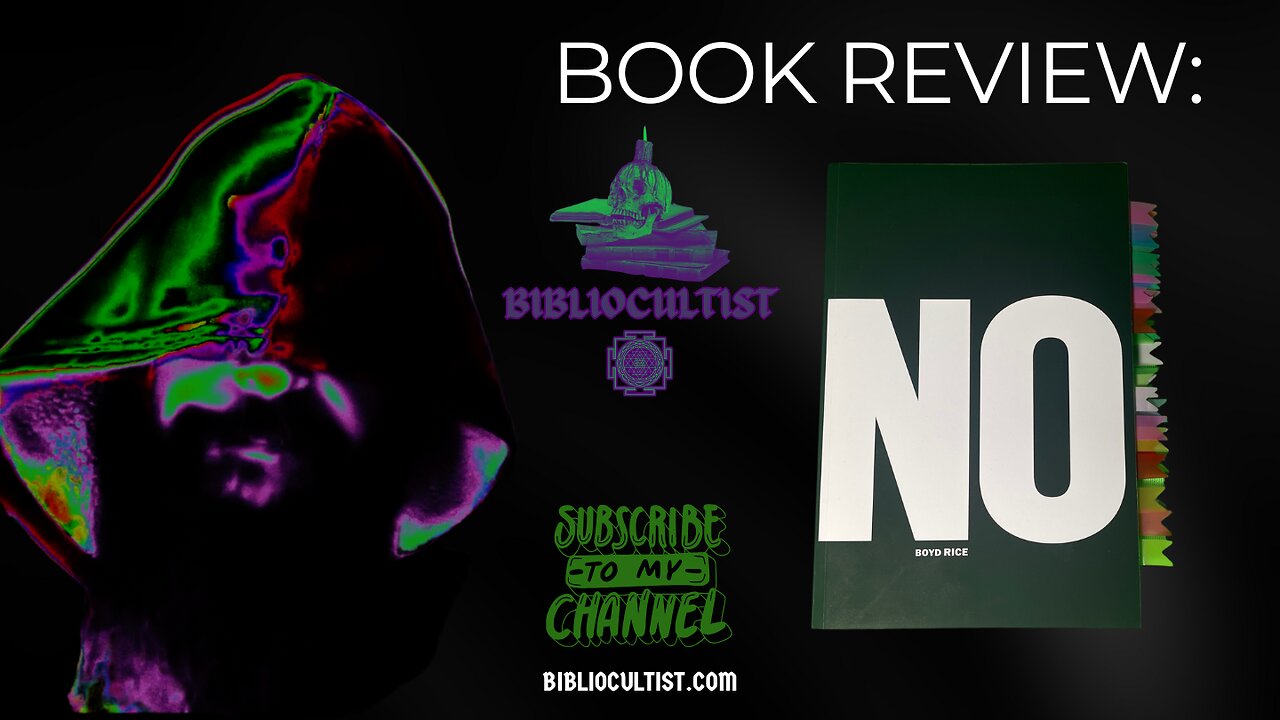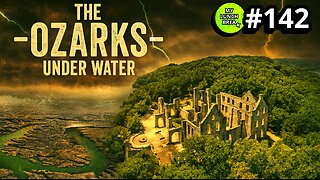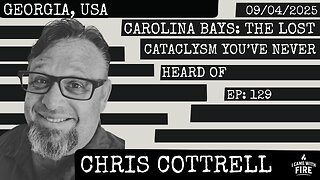Premium Only Content

Philosophy for the Bold: Why Boyd Rice's 'NO' Is an Important Read
*CHECK OUT MY MERCH: https://bibliocultist.printful.me/*
In this spoiler-free #bookreview and #bookrecommendation, I explore Boyd Rice's provocative philosophical work ‘NO’, which challenges modern presuppositions about equality, individuality, and peace. Rice presents unconventional ideas in a simplified, everyday language, deconstructing complex concepts to reveal deeper truths. The book critiques the obsession with atomized individualism, arguing for a more nuanced notion of identity. It also suggests that true harmony requires hierarchy and authoritarian imposition, contrasting egalitarian ideals. An insightful and thought-provoking read that will make you rethink many assumptions.
*all music and content copyright BiblioCultist.com*
#booktube #books #philosophy #BoydRice #no #individuality #authority #hierarchy #presuppositions #biblio #cultist #satanism #lavey #churchofsatan
**SHOW NOTES**
1. Boyd Rice, also known by his stage name NON, is an American musician, writer, and countercultural figure born in 1956. He is best known for pioneering industrial music with his project NON, which features abrasive sounds, noise, and transgressive themes that challenge societal norms. Rice's work has been both controversial and influential in experimental and avant-garde circles since the 1970s.
2. The "Left-Hand Path" is a term rooted in esoteric and occult traditions, symbolizing practices centered on individualism, self-deification, and the pursuit of personal power or enlightenment through methods considered taboo or transgressive. Historically, it originates from Tantra and Western esotericism, where it contrasts with the "Right-Hand Path," which emphasizes conformity to moral laws, divine worship, and collective good. The Left-Hand Path focuses on breaking societal norms and exploring forbidden knowledge to achieve liberation and self-mastery.
3. The Catholic heresy of Modernism emerged in the late 19th and early 20th centuries as an attempt to align Catholic doctrine with modern intellectual trends like historical criticism, evolutionary theory, and secular philosophy. It proposed that religious truth evolves over time and is influenced by cultural and historical contexts, challenging the notion of unchanging doctrines. In contrast, the broader philosophy of Modernism focuses on progress, individualism, and skepticism toward tradition, often embracing scientific and secular worldviews without necessarily engaging with religion.
4. The Pax Romana, or "Roman Peace," was a roughly 200-year period of relative stability and prosperity in the Roman Empire, beginning with the reign of Augustus (27 BCE) and lasting until the death of Marcus Aurelius (180 CE). This era of peace was largely achieved through the imposition of a strong, centralized autocratic dictatorship, where the emperor wielded absolute authority over the vast empire. The Romans maintained order through military might, strict legal systems, and efficient administration, suppressing rebellions and deterring external threats with overwhelming force.
5. John Locke and Jean-Jacques Rousseau are often credited with popularizing the concept of "natural rights," which they claimed were inherent to all individuals by virtue of their humanity. Locke emphasized life, liberty, and property, while Rousseau focused on freedom and equality in the "state of nature." However, these notions have been criticized as philosophically flawed and impractical, as they rely on abstract ideals disconnected from the realities of power and governance. The idea of "secular humanism," which emerged from such Enlightenment ideals, can be seen as the de facto religion of the modern world, replacing divine authority with a quasi-religious faith in human reason, progress, and autonomy.
6. The Protestant Reformation, initiated by figures like Martin Luther and John Calvin in the 16th century, was a religious upheaval that challenged the Catholic Church’s authority, emphasizing individual interpretation of Scripture and salvation by faith alone. Its intellectual roots, however, can be traced to nominalism, a philosophical movement that rejected universal truths, focusing instead on particulars and subjective experience. This shift undermined the medieval synthesis of faith and reason, fragmenting Christian unity and paving the way for skepticism about objective authority.
7. Anton LaVey, founder of the Church of Satan and author of The Satanic Bible, was a key figure in modern occultism, advocating for individualism, atheism, and rebellion against societal norms. He formed a close friendship with countercultural artist Boyd Rice, who shared his interest in the Left-Hand Path and transgressive philosophies. Toward the end of his life, LaVey considered naming Rice as his successor to lead the Church of Satan, but Rice declined, preferring to remain independent and focus on his artistic and philosophical projects rather than taking on institutional leadership.
-
 13:37
13:37
Exploring With Nug
9 hours ago $1.88 earnedTrying to Uncover Secrets in St Augustine’s Waters Missing Person Search!
13K1 -
 24:09
24:09
MYLUNCHBREAK CHANNEL PAGE
1 day agoDams Destroyed The Ozarks
68.1K31 -
 1:32:54
1:32:54
Jeff Ahern
6 hours ago $26.09 earnedThe Saturday Show with Jeff Ahern
90.2K10 -
 DVR
DVR
TheManaLord Plays
8 hours agoMANA SUMMIT - DAY 1 ($10,200+) | BANNED PLAYER SMASH MELEE INVITATIONAL
54K3 -
 LIVE
LIVE
Major League Fishing
3 days agoLIVE Tackle Warehouse Invitationals Championship, Day 2
100 watching -
 LIVE
LIVE
CassaiyanGaming
9 hours agoMYSTIVITHON - 12 HOUR CHARITY STREAM 🌊
62 watching -
 2:14:16
2:14:16
Lara Logan
21 hours agoSTANDING AGAINST THE GLOBAL ELITE with Trump Ally President Milorad Dodik of Republika Srpska | Ep34
41.2K26 -
 LIVE
LIVE
Total Horse Channel
23 hours ago2025 Reno Snaffle Bit Futurity | Saturday
848 watching -
 1:22:10
1:22:10
Michael Franzese
8 hours agoI'm Calling Out All The Nonsense From The Left & "New" Epstein Files
71.2K58 -
 2:35:48
2:35:48
I_Came_With_Fire_Podcast
22 hours agoCarolina Bays: The Lost Cataclysm You've Never Heard Of
33.5K12